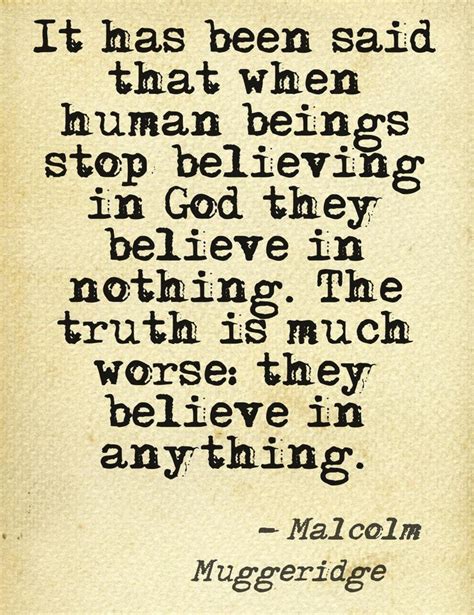ARE WE LIVING IN A COMPUTER SIMULATION?
by Jeemes Akers
“Our temptation to improve ourselves through our own machines—“big brains” in the 50s, or artificial intelligence today—is hardwired into who we are as humans. We don’t just want to play God, we want to beat God, building artificial intelligence that’s better than the non-artificial kind. This hubris will never go away.”
Dr. Thomas Rid
The Rise of Machines: The Lost History of Cybernetics
“In the twenty-first century we will create more powerful fictions and more totalitarian religions than in any previous era. With the help of biotechnology and computer algorithms these religions will not only control our minute-by-minute existence, but will be able to shape our bodies, brains, and minds, and to create entire virtual worlds complete with hells and heavens. Being able to distinguish fiction from reality and religion from science will therefore become more difficult but more vital than ever before.”
Yuval Noah Harari
Homo Deus: A Brief History of Tomorrow
“It has been said that when human beings stop believing in God, they believe in nothing. The truth is much worse: they believe in anything.”
Malcolm Muggeridge
Elon Musk is, without a doubt, my favorite modern-day, centibillionaire techno-entrepreneur. As CEO and creative spirit behind such forward-leaning companies as Space X, Tesla, The Boring Company and co-founder of Neuralink and OpenAI, Musk has placed himself at the forefront of contemporary thinking. His opinion counts.
He is generally regarded as “the smartest person in any room anywhere.”1 That’s why Musk’s statement in June 2015—never retracted—raised so many eyebrows when he suggested that our present-day reality itself is almost certainly a “virtual simulation” created by a powerful alien species. Musk further asserted that “the odds that we’re in a base reality is one in billions.”
The idea was hardly new with Musk.
In its current iteration it traces back to a paper by University of Oxford philosopher Nick Bostrum in 2003.2 The logic of Bostrum’s argument: if there are long-lived technological civilizations in the universe, and if they run computer simulations, there must be a huge number of simulated realities complete with artificial-intelligence inhabitants who may have no idea they are living inside a game.3
Perhaps, just like us present-day humans, Musk and Bostrum would assert.
In a fascinating article on the topic of virtual simulation for Scientific American by Fouad Khan, he argues that the chance we live in a simulation may be 50-50, and further suggests what the simulated hypothesis really is:
“It is the ultimate conspiracy theory. The mother of all conspiracy theories, the one that says that everything, with the exception of nothing, is fake and a conspiracy designed to fool our senses. All our worst fears about powerful forces at play controlling our lives unbeknownst to us, have now come true. And yet this absolute powerlessness, this perfect deceit offers us no way out in its reveal. All we can do is come to terms with the reality of the simulation and make of it what we can.”4
Others are less than convinced. Physicist Frank Wilczek argues that there’s too much wasted complexity in our universe for it to be simulated; in other words, why would a future programmer and designer waste so many resources into making our world more complex than it needs to be.5
H-m-m.
Am I the only one who likes to think about these things?
I briefly mentioned, for example, the concept of solipsism in my last missive.
But it seems to me that as long as a Creator God is not thrown into the mix, no idea suggested in this new virtual reality, metaverse-conscious world of ours is too far-fetched. Call me crazy if you like, but I much prefer what Scripture has to say about the topic. In making the case for the eternal preeminence of Christ, Paul’s letter to the Colossians says:
“For it was in Him [Jesus Christ] that all things were created, in heaven and on earth, things seen and things unseen, (the King James version says the “visible and invisible”) whether thrones, dominions, rulers or authorities: all things were created and exist through Him [by His service, intervention] and in and for Him. And He Himself existed before all things, and in Him all things consist (cohere, are held together).6
Compare this to one of today’s most respected scientists—Max Tegmark:
“The simplest and most popular cosmological model today predicts that you have a twin in a galaxy about 10 to 10 (28) meters from here.”
What has happened to science?
Dr. Maurice Boyd was one of my favorite history professors during my graduate school years at Texas Christian University in Fort Worth, Texas. He was the Department Chair, a large teddy-bear of a man with bushy eyebrows, a quick, genuine smile and a quiet and modest intelligence. All the history graduate students—me included—both loved and respected him. Those were the heady days of the Cold War, Watergate, campus unrest, fallout shelters, Encyclopedia Britannica, the Space Race and gasoline rationing. It was also an age of typewriters, dial-up telephones, phonographic albums, and single-lens reflex cameras.
In other words, a long-forgotten world.
For Boyd’s Early Modern European History class, he assigned each of us to read a large bundle of books.
One of those books changed my life.
Thomas Samuel Kuhn’s controversial book, The Structure of Scientific Revolutions, was published in 1962, and became very influential in academic and popular circles. Kuhn (1922-1996) was an American physicist, historian and philosopher of science, whose book made the term “paradigm shift” an English-language idiom. In his book, Kuhn asserted that scientific fields undergo periodic “paradigm shifts” rather than progressing in a linear and continuous way and that these shifts open up new approaches to understanding that scientists would never have considered before. Moreover, the notion of scientific truth, at any given moment, cannot be established by objective criteria but is defined by a consensus of the scientific community.
Competing paradigms are viewed as irreconcilable accounts of reality.
It seems to me that Kuhn’s ideas are just as relevant today as when I first read them almost five decades ago. Today, scientific elites have closed ranks in support of politicized science7 and are quick to drum out any thinker opposing this party line. (These days opponents are delisted and ostracized from social media platforms). Any alternative hypothesis regarding the long-term, unforeseen consequences of mRNA vaccines, or climate change, for example, is ridiculed and its proponents are lampooned in the harshest terms. No one dare defy the conventional wisdom. Very few seem to question how scientists “in the club” are vying for billion dollar commercial and government contracts to support their pet research projects.
In my view, many of today’s scientists are selling their souls to the highest bidder.
I often wonder what Kuhn would think of how computers have changed modern science, particularly the idea that a discovery should be reproducible before being accepted as scientific knowledge. As one recent commentator observes:
“For most the history of science, researchers have reported their methods in a way that enabled independent reproduction of their results. But, since the introduction of the personal computer—and the point-and-click software programs that have evolved to make it more user-friendly—reproductibility of much research has become questionable, if not impossible. Too much of the research process is now shrouded by the opaque use of computers that many researchers have come to depend on. This makes it almost impossible for an outsider to recreate their results.”8
At any rate, just as my brief practice of law made me forever warily cautious of medical practitioners, Kuhn’s concepts have influenced my skepticism of today’s scientists and technocrats.
But surely Jeemes, you don’t deny that great scientific and technological discoveries are being made?
Of course not.
In fact, my personal belief is that the real driving force behind today’s breakthrough scientific discoveries at the macro- and micro-levels has less to do with man’s ingenuity, or math-based algorithms, than a prophetic promise God made to His people:
“This is what the LORD says: ‘Only if the heavens above can be measured and the foundations of the earth below be searched out will I reject all the descendants of Israel because of all they have done,’ declares the LORD.”9
But there is a larger point to be made.
I consistently told my college students that the timing is right for a new scientific revolution—in their lifetimes—that will fundamentally alter our view of reality. It will be the ultimate Black Swan. Furthermore, I respectfully suggest that radically new algorithms (perhaps generated by AI) will, in all likelihood, be at the center of these new theories of reality.
In my heart-of-hearts, I wonder if such concepts will also set the perceptual stage for the final great deception.
“Sigh.”
As a final thought.
Several years ago, I started writing a fiction piece that revolved around a strange scene: I was sitting in a railroad-type passenger car with only one other passenger on board. This passenger, an Albert Einstein-looking individual, was seated near the rear of “Car Eight.” I remember being startled when this elderly gentleman, without warning, suddenly stands up and yells, “I’ve done it! I’ve figured out how everything in the universe works.”
That scene remains so powerfully etched in my imagination that I’ve never been able to shake it. Unfortunately, I was never able to finish the piece because, in large part, I couldn’t come up with a suitable ending. The scene with the passenger left far more questions than answers.
What exactly was he talking about by claiming to have uncovered the secret key to the inner workings of the universe?
Was it based on an entirely new mathematical algorithm?
Was the figure real or an avatar in the metaverse?
Was the imaginary scene—which remains so vivid to me—the product of my imagination, a dream sequence, or an unexplained vision?
Why was I there? (Or, for that matter, why was he there?)
Why inside a train car?
Why Car Eight?
Where was the train going?
Why was the man a grandfatherly figure that looked so much like Einstein? (I have often thought this could have been triggered by the fact that Einstein was working on a unified theory of physics when he passed and, in his final moments of life, uttered something. The nurse at his bedside was unable to speak German and did not understand the great scientist’s final words. Nor was she able to repeat the words so they made sense to others. Einstein’s deathbed utterance remains one of history’s most enduring mysteries).
I have learned since that my imaginative railcar scene somewhat resembles the opening scene of The Hitchhiker’s Guide to the Galaxy, where a “girl sitting on her own” in the town of Rickmansworth, suddenly discovers the secret to making the world “a good and happy place.” But as fate would have it, “before she could get to a phone to tell anyone about it, a terrible stupid catastrophe occurred, and the idea was lost forever.”10
How many really good ideas have been lost forever?
At any rate, my scene with the all-knowing passenger, as much as anything else, explains my interest in physicists’ and mathematicians’ present-day efforts to derive a functional theory that could explain all of life—from quantum interactions at the micro-level to Einstein’s theories of general relativity at the macro-level. Included in this curiosity, are the notions of Musk, Bostrom and others regarding the idea that each of us are living in a virtual simulation.
Perhaps I am one of the few that would hope that such all-encompassing theories of existence would take into account spiritual dynamics.
“Sigh.”




